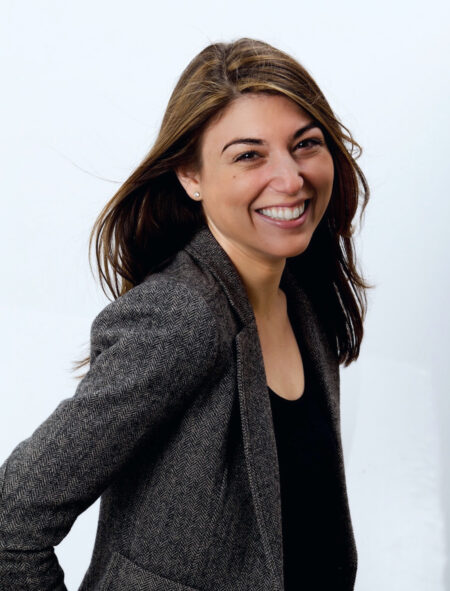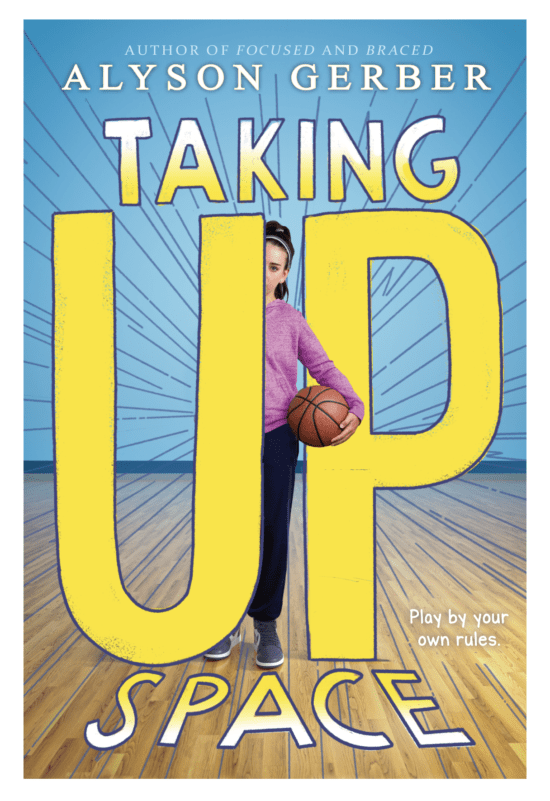
[CW: Eating disorders]
From beloved author Alyson Gerber comes another realistic contemporary novel called ‘Taking Up Space’. The story centers on main character Sarah, who loves basketball more than anything. Crushing it on the court makes her feel like she matters. And it’s the only thing that helps her ignore how much it hurts when her mom forgets to feed her.
But lately Sarah can’t even play basketball right. She’s slower now and missing shots she should be able to make. Her body doesn’t feel like it’s her own anymore. She’s worried that changing herself back to how she used to be is the only way she can take control over what’s happening. When Sarah’s crush asks her to be partners in a cooking competition, she feels pulled in a million directions. She’ll have to dig deep to stand up for what she needs at home, be honest with her best friends, and accept that she doesn’t need to change to feel good about herself.
Published as part of Scholastic’s #OwnVoices collection, Alyson draws from personal experience with disordered eating in this new book. This is more than a fictional story, this is a story about discovering your power, learning to question diet culture, and finding the courage to take up space in the world.
With ‘Taking Up Space’, Alyson attempts to change the narrative around self-worth, body image, and food for the next generation. After a year of restrictions and lockdowns, disordered eating is on the rise, and it feels more important than ever to deepen our understanding of food trauma. And given that May has been Mental Health Awareness month, it is vital to provide more space for these conversations and stories. Alyson opened up to us about the importance of focusing on mental health, the events in her own life, even recent events, that she drew upon for this novel, and why choosing to get help and taking up space are courageous acts we need to see more of.

Tell us how the story in “Taking Up Space” first came about? What prompted you to write this book?
‘Taking Up Space’ is the story about a basketball player struggling to feel good about her body and herself. It’s based on my experience overcoming struggles with body image, body dysmorphia, self-worth, and disordered eating.
When I started writing ‘Taking Up Space’, I was pregnant with my daughter. The physical and emotional changes felt familiar, like I was 11 again and going through puberty. At that time, I had to wear a big, clunky back brace 23/7 to treat my scoliosis. The brace pinched me and held my spine in place as I grew to prevent the curve from moving. I felt trapped and uncomfortable all the time. I wanted to shrink myself, so I wouldn’t feel so different from my friends. So I’d have some control over what was happening to me. So I’d feel more comfortable in my body. And so I could go back to before my body changed.
Pregnancy triggered those same feelings. As soon as I started restricting, binging, and thinking about food and my body all the time, I got professional help, and I wrote down everything I was feeling. What I discovered in all those scribbles is that I was writing a book about how we learn to value ourselves. And how for many of us that journey is long and complicated and hard. In all those notes, I found ‘Taking Up Space’.
The themes discussed in Sarah’s story, including diet culture, disordered eating and self-worth, are based on your own experiences. Can you share more about this?
My struggles with food, body image, and self-worth started very early. They began with my medical treatment for scoliosis. And I became hyper focused, a side effect of undiagnosed ADHD, on how I felt in my body and how I felt about myself. I was stuck in a cycle of negative self-talk and disordered eating for many, many years before I got help. Like Sarah, I spent a lot of time convincing myself that what I was feeling and experiencing wasn’t a big deal, even though it was having a huge impact on my mental and physical health.
I wanted to tell a story where the main character doesn’t technically have a mental illness and so she wrongly believes that she doesn’t have a problem and doesn’t think that she needs professional help. When in reality, she does.

After a year of lockdowns due to COVID, we are seeing a rise in mental health issues and eating disorders, especially among young people. What kind of conversations do we need to be having, going forward, to push for change?
I didn’t get professional help for my mental health until I was 21, when I was already in so much pain from years of burying my feelings and experiences and making self-destructive decisions.
I wonder how much easier things would have been for me if I’d met with a therapist who took me seriously, helped me advocate for my needs, and validated my pain when I first got my brace at 11 or when I started being monitored for scoliosis at 7. I wonder how things could have been different if in the face of adversity—managing a medical condition and adult responsibilities that significantly impacted my mental health—I’d been given tools and support and acknowledgement that I was doing a hard thing.
No matter how resilient we are, we have to process difficult experiences and be allowed to have feelings so we can figure out what we need to be okay. That’s different for everyone. Learning what you need when you’re up against something challenging early in life is a huge advantage. Rather than dismiss our kid’s mental health and perpetuate the idea that therapy is a sign of failure and weakness, we should want to give them every advantage.
We need to start listening to each other. We need to take small problems seriously. Most of all, we need to stop acting like everything is fine and that we should only be grateful and feel lucky. We’re in the middle of a pandemic, everything is not okay. Gratitude and pain can exist at the same time.
Body image, self-worth and eating disorders are so intertwined and very prominent in the lives of teens and college students. What are some practical steps parents and teachers can take to ensure these issues don’t get hidden or stigmatized?
I highly recommend that teachers and parents read my book. ‘Taking Up Space’ will give adults who are struggling with food, body image, and disordered eating the tools to talk to kids. If you’re someone who’s struggling to feel good in your body and in your relationship with food, it can feel uncomfortable to bring up this topic. But at least fifty percent of eight year olds want to be thinner, and they feel better when they’re on a diet. 75% of women have disordered eating. And we know that disordered eating in men is really under reported.
We have to talk to young people about disordered eating and diet culture, because they’re encountering it everyday from a much earlier age than we want to admit. They’re also confused about what it means and why it matters and how it’s different from having an eating disorder. And adults are too!
‘Taking Up Space’ is a safe place to open up this conversation. This book doesn’t require the adults to be the experts. It is a way to learn and connect about this topic that can’t be ignored anymore. Everyone deserves to know that they matter and their pain is real.

We’ve seen so many notable public figures call out diet culture and false advertising, including Jameela Jamil. What should people know about the harms of diet culture and potential long-term effects?
Jameela Jamil is doing amazing work!
Unfortunately, diet culture—which values weight, size, and shape over actual health and well-being—is very powerful. It’s deeply ingrained in our society and it has evolved over generations dating back to at least the early 1800s.
What I wish everyone in the world knew is that food doesn’t have a moral value. It’s not sinful or bad. Feeling shame and guilt about food is diet culture hurting you. We have to name it, call it out, and stop it from making us feel like we’re not worthy or valuable.
What do you hope readers will take away from reading “Taking Up Space” and Sarah’s story?
I want readers to feel empowered and encouraged to be honest about how they really feel. I hope ‘Taking Up Space’ helps everyone speak up for what they need.
Why is it considered a courageous act to “take up space” in the world today, do you think?
It shouldn’t be. But in our society that’s plagued by racism, ableism, sexism, and fatphobia, taking up physical and emotional space is a privilege that’s only afforded to some people. As a woman with a disability, I’ve faced push back and been told to “settle down” or “don’t make such a big deal about that.” I’ve had people over the years try to talk me out of my needs or minimize my challenges. And I have both white privilege and thin privilege, so I know that many people face much higher barriers to being heard, seen, and validated.
For people who are looking for extra resources for help, can you share some of the places that you would recommend?
You can find more information and support at National Eating Disorders Association and Child Mind Institute.
Get a copy of ‘Taking Up Space’ from the following links:
Amazon: https://www.amazon.com/Taking-Up-Space-Alyson-Gerber/dp/1338186000
Barnes & Noble: https://www.barnesandnoble.com/w/taking-up-space-alyson-gerber/1137578702
Bookshop: https://bookshop.org/books/taking-up-space/9781338186000
Indiebound: https://www.indiebound.org/book/9781338186000
Scholastic: https://shop.scholastic.com/parent-ecommerce/books/taking-up-space-9781338186000.html

















